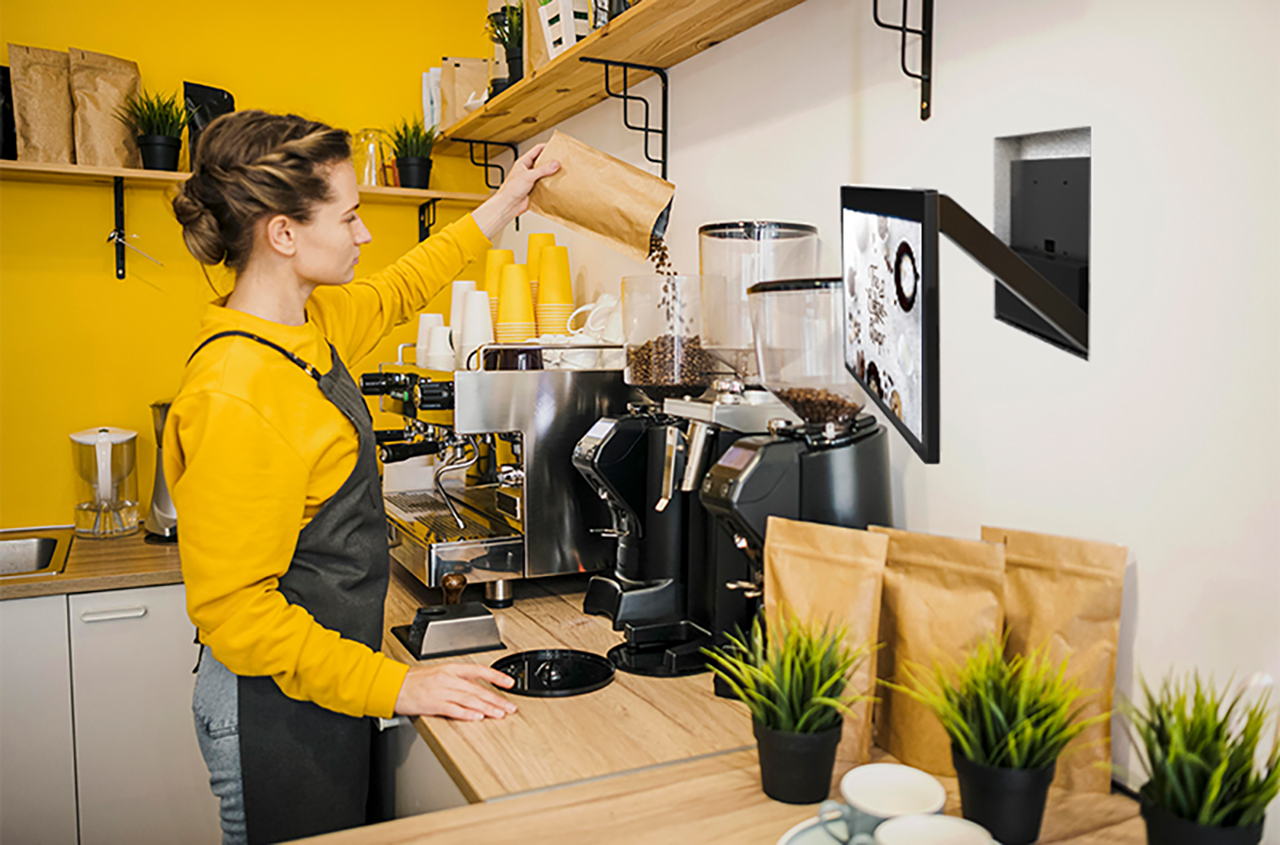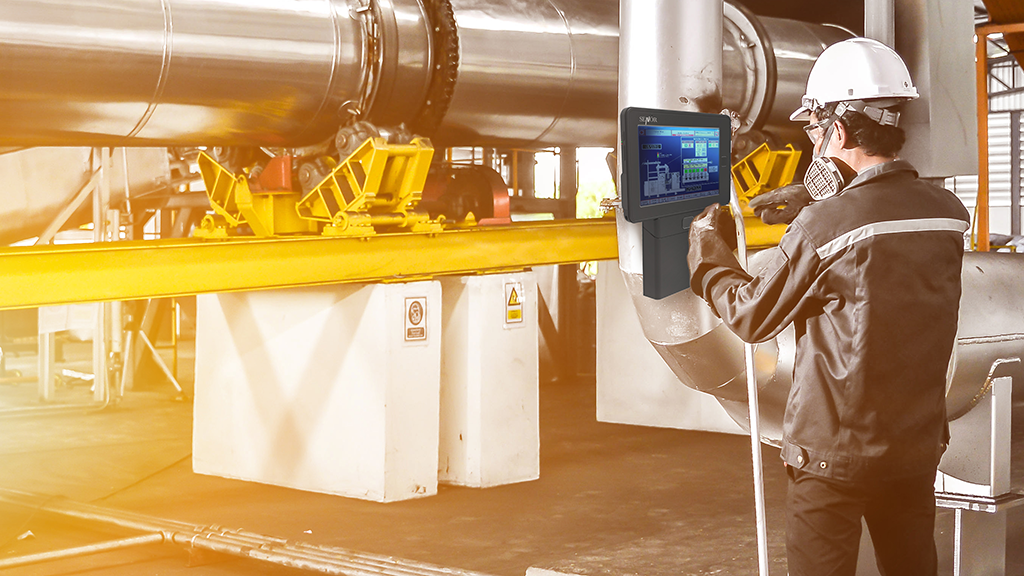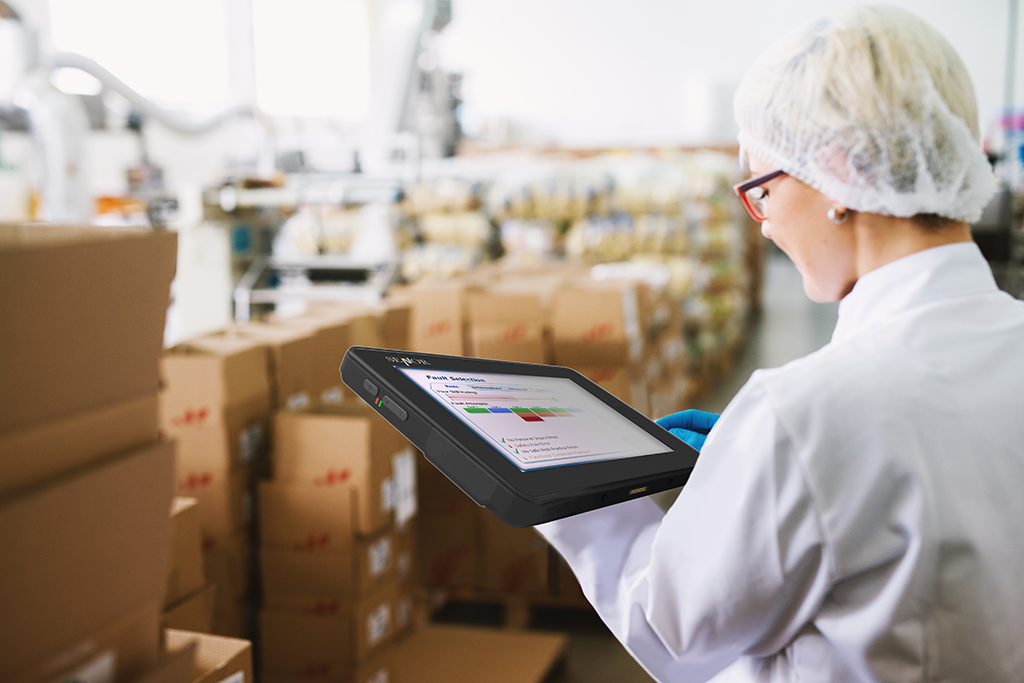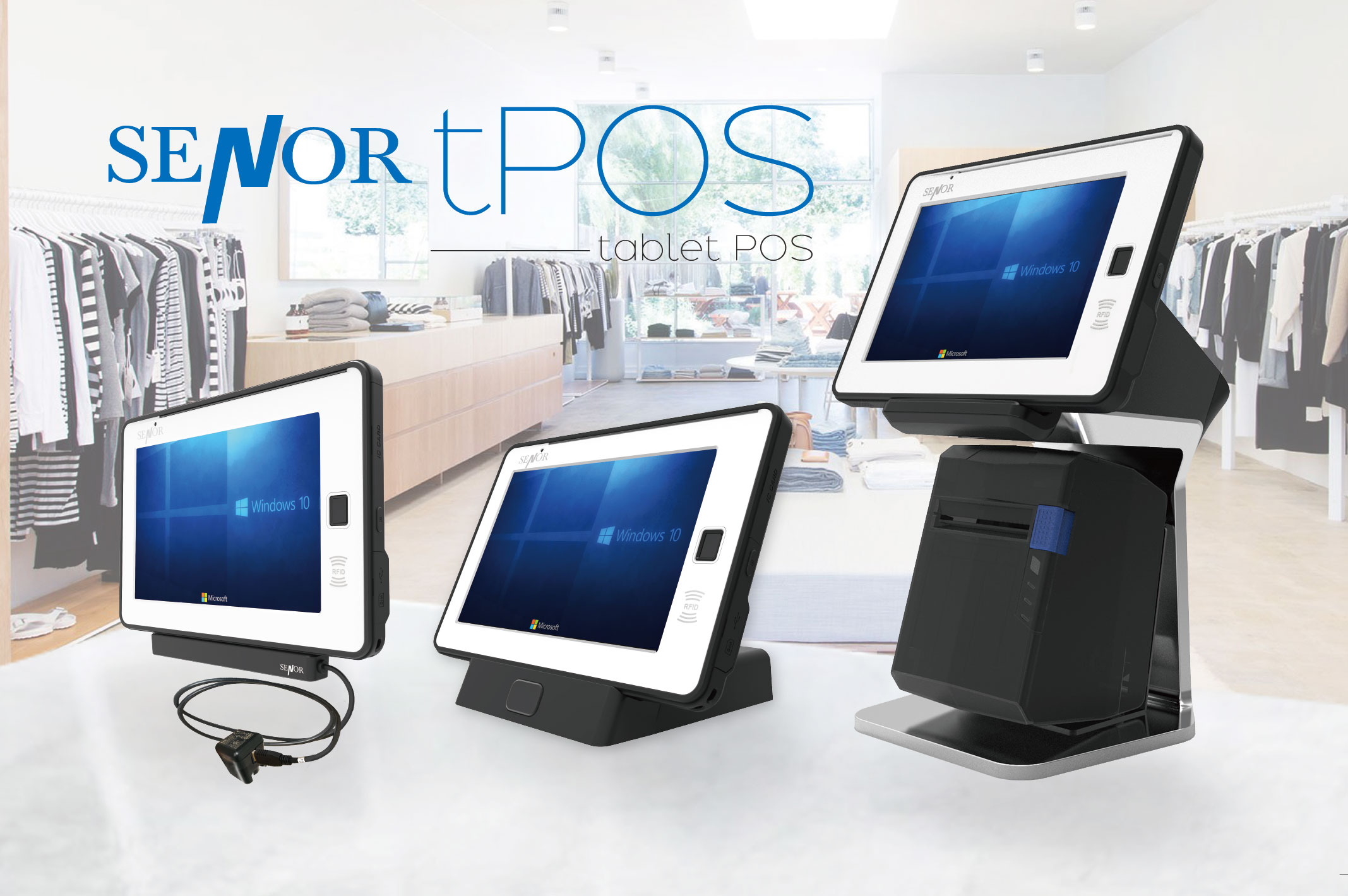Industrial tablet PC running on windows 10 above is a specially designed device for industry-specific use, featuring powerful computing capabilities and a rugged, durable casing, aimed at withstanding various harsh industrial environments. These tablets typically have larger screen sizes, allowing operators to display and handle complex data in real work scenarios.
What is industrial tablet PC ?
SENOR industrial tablet PC, also known as an industrial-grade tablet or rugged tablet, is a specialized type of tablet computer with touch screen designed to withstand harsh and demanding environments in industrial settings. These tablets are built to be more durable and rugged compared to consumer-grade tablets, making them suitable for use in industries such as manufacturing, logistics, construction, healthcare, and field service.
Industrial tablet PCs are designed to withstand extreme temperatures, shocks, vibrations, dust, water, and other challenging conditions. They are often built with reinforced casings, toughened screens, and sealed ports to protect against drops, impacts, and environmental elements. These devices are typically compliant with industry standards for durability and reliability, such as the MIL-STD-810G military standard.
In addition to their robust construction, SENOR industrial tablets with touch screen offer various features and capabilities tailored to industrial applications. These may include barcode scanners, RFID readers, GPS navigation, enhanced battery life, advanced connectivity options (such as Wi-Fi, Bluetooth, and cellular), hot-swappable batteries, and specialized software for data collection and management. Some industrial tablets also support additional accessories like hand straps, vehicle mounts, and docking stations for versatility and ease of use in different work environments.
The primary purpose of industrial tablet PCs is to provide a mobile computing solution for professionals in industries that require reliable and rugged devices. They enable workers to access critical data, perform tasks, and communicate while on the go, enhancing productivity, efficiency, and accuracy in various industrial workflows.
How to choose an industrial tablet PC?
When selecting an industrial tablet PC, consider the following:
- Durability:
Choose a tablet that meets ruggedness standards like MIL-STD-810G. It should withstand shocks, drops, vibrations, dust, and water. - Environmental Considerations:
Assess your industry’s specific conditions. Consider temperature range, humidity, and exposure to chemicals. Ensure the tablet can operate reliably in those conditions. - Performance:
Determine the required processing power, memory, and storage based on your tasks and applications. Ensure the tablet can handle your workload effectively. - Display:
Evaluate screen size, resolution, and readability in various lighting conditions. Some industries may require sunlight-readable displays or glove-friendly touchscreens. - Connectivity:
Consider Wi-Fi, Bluetooth, and cellular data options. Ensure the tablet has the necessary connectivity for communication and data transfer. - Battery Life:
Assess the tablet’s battery life and if it can last a full work shift. Look for hot-swappable battery options for uninterrupted operation. - Specialized Features:
Determine if you need barcode scanners, RFID readers, GPS, or industry-specific software. Ensure the tablet offers these capabilities. - Accessories and Mounting Options:
Consider additional accessories or mounting options required for your work environment. This could include vehicle mounts, hand straps, or docking stations. - Support and Service:
Research the manufacturer’s reputation for customer support and after-sales service. Ensure they provide reliable technical support and warranty coverage. - Cost:
Compare features, durability, and performance within your budget. Choose a tablet that offers value for money.
By considering these factors, you can select an industrial tablet PC that meets your industry’s requirements and enhances productivity in your workflow. SENOR technology is a company you can rely on!
How is industrial tablet PC application?
Industrial tablet PCs have diverse applications across industries:
- Manufacturing:
Used for quality control, inventory management, production monitoring, and process optimization on the factory floor. - Logistics and Warehousing:
Facilitate efficient inventory management, order tracking, barcode scanning, and real-time data synchronization. - Field Service:
Enable technicians to access work orders, manuals, troubleshoot, update service records, and capture data while on-site. - Construction and Engineering:
Assist with project management, blueprint viewing, documentation, and collaboration among teams. - Healthcare:
Support mobile healthcare applications, such as patient data management, bedside care, medication administration, and remote consultations. - Utilities and Energy:
Aid in meter reading, maintenance inspections, asset management, and data collection for power plants and utility companies. - Transportation and Logistics:
Assist in route planning, vehicle tracking, electronic proof of delivery, and fleet management. - Agriculture:
Provide real-time data collection and analysis for crop monitoring, precision farming, and equipment maintenance. - Public Safety:
Utilized by police, fire, and emergency services for incident reporting, mapping, communication, and access to critical information. - Retail and Hospitality:
Used for mobile point-of-sale systems, inventory management, customer engagement, and guest services.
These industrial tablet PCs offer versatility, durability, and mobility, enhancing productivity, efficiency, and data management in various industrial settings.
What are the traceability system and hardware device requirement in the shop floor?
A traceability system in the shop floor refers to the ability to track and record information about products, materials, or components as they move through various stages of the manufacturing or production process. This system helps in identifying and capturing data related to the origin, history, location, and other relevant details of the items involved. Traceability systems are crucial for quality control, process optimization, regulatory compliance, and supply chain management. They enable organizations to have better visibility and control over their operations.
Hardware Device Requirements for a Traceability System on the Shop Floor:
Barcode Scanners: Barcode scanners are essential for capturing data encoded in barcodes or QR codes on products, materials, or containers. They allow for quick and accurate data entry, reducing errors and improving efficiency. Handheld or fixed-mount barcode scanners can be used depending on the specific requirements of the shop floor environment.
RFID Readers: RFID (Radio Frequency Identification) readers use radio waves to capture data stored on RFID tags attached to items. They provide a contactless and efficient means of capturing information, even in bulk or high-speed scenarios. RFID readers can be integrated into handheld devices or fixed readers placed at key checkpoints on the shop floor.
Industrial tablet PC: Industrial-grade mobile computers or tablets, such as the ones mentioned earlier, play a crucial role in the traceability system. They serve as the interface for capturing, processing, and displaying data related to the traceability process. Industrial tablet PC should be rugged and capable of withstanding the demanding shop floor environment.
Printers: Label printers are used to generate barcode labels or RFID tags that are affixed to products, materials, or containers. They should be capable of producing durable and readable labels that can withstand the conditions on the shop floor.
Data Collection Terminals: In some cases, specialized data collection terminals may be required. These devices are designed for specific data capture tasks and can be customized based on the needs of the traceability system. They may include features such as physical buttons, integrated scanners, and robust connectivity options.
Networking Infrastructure: A reliable and secure network infrastructure is essential for connecting the hardware devices and transmitting data captured in the traceability system. This includes Wi-Fi access points, switches, routers, and network cables. The infrastructure should be designed to handle the data traffic generated by the traceability system.




